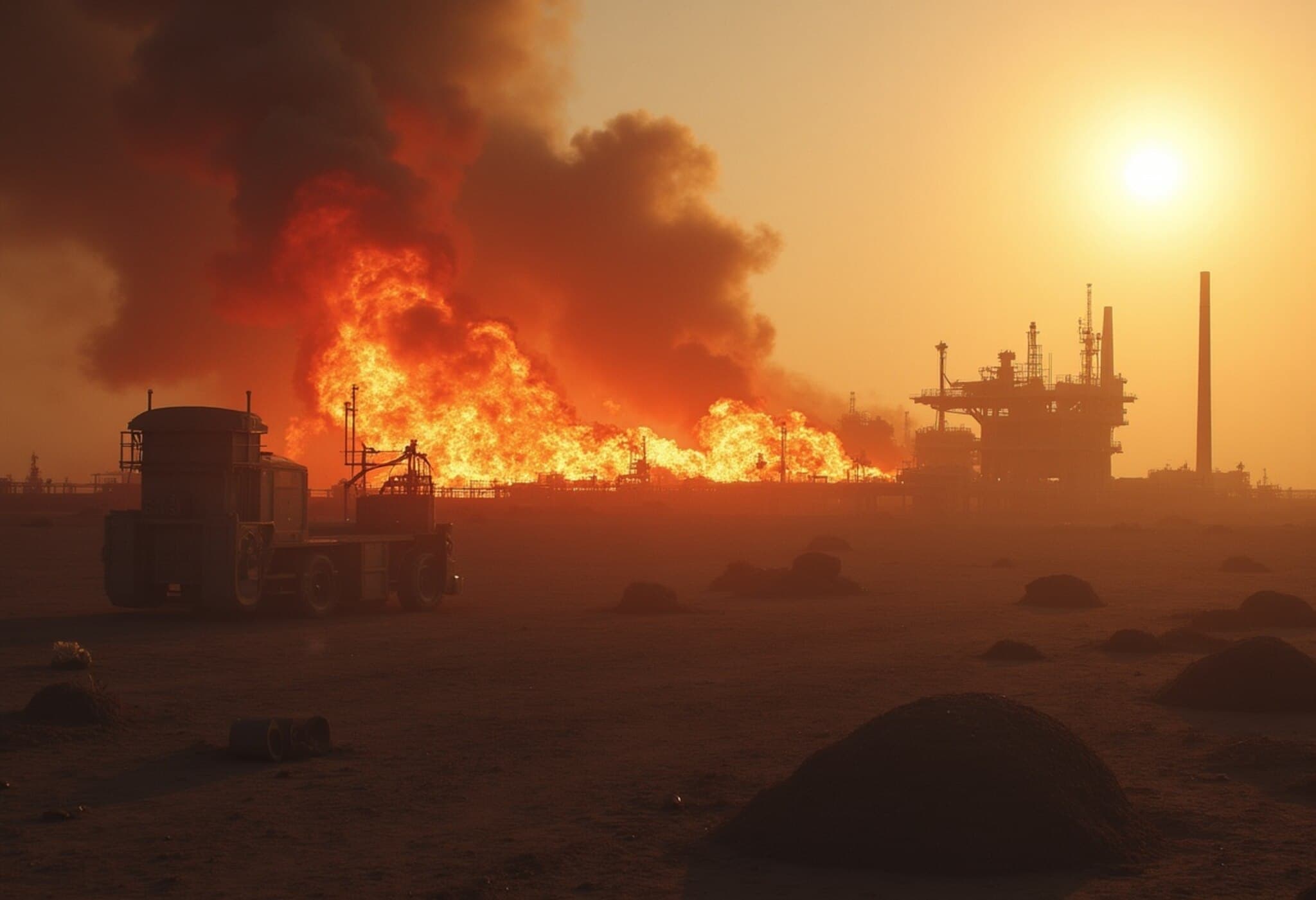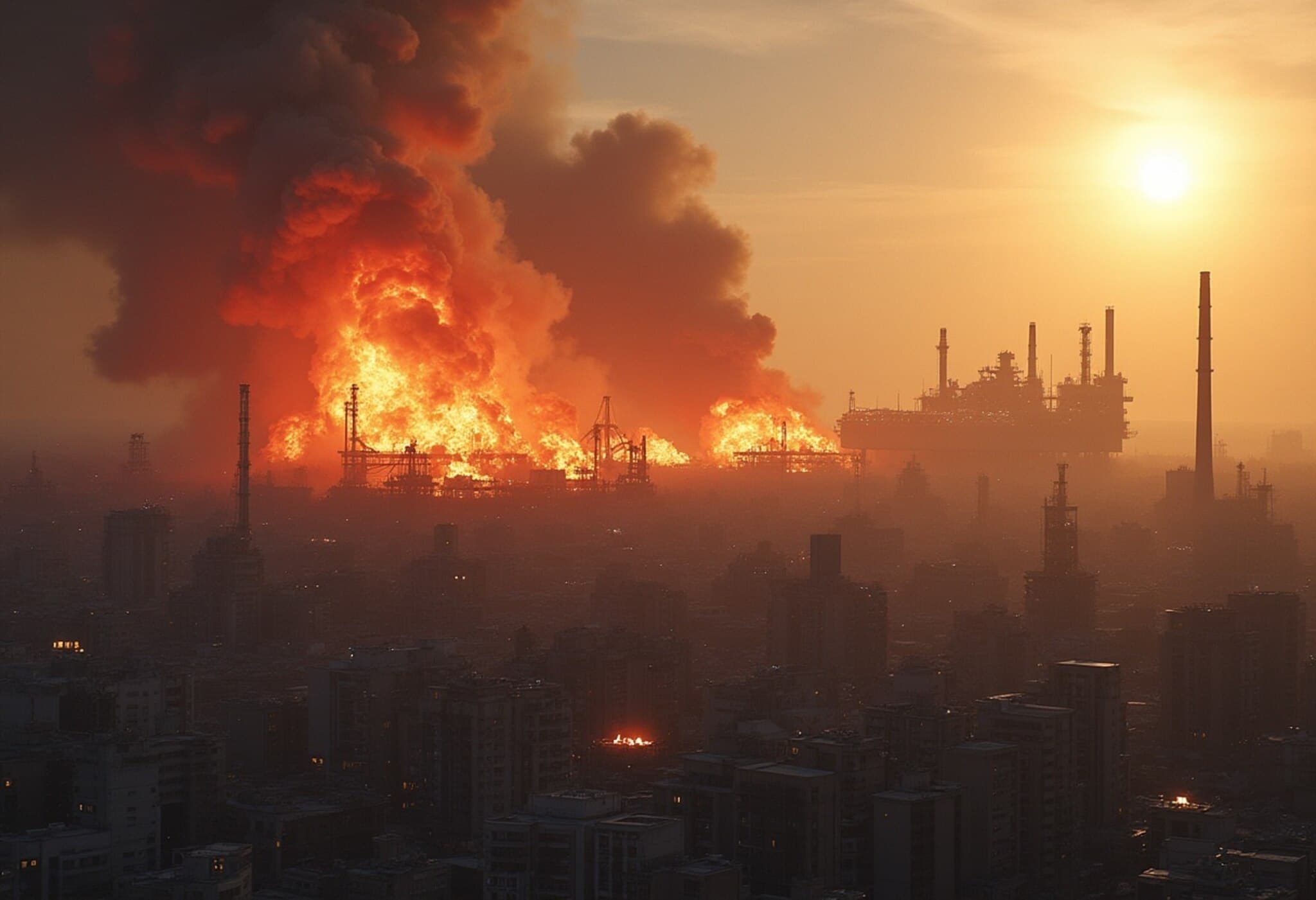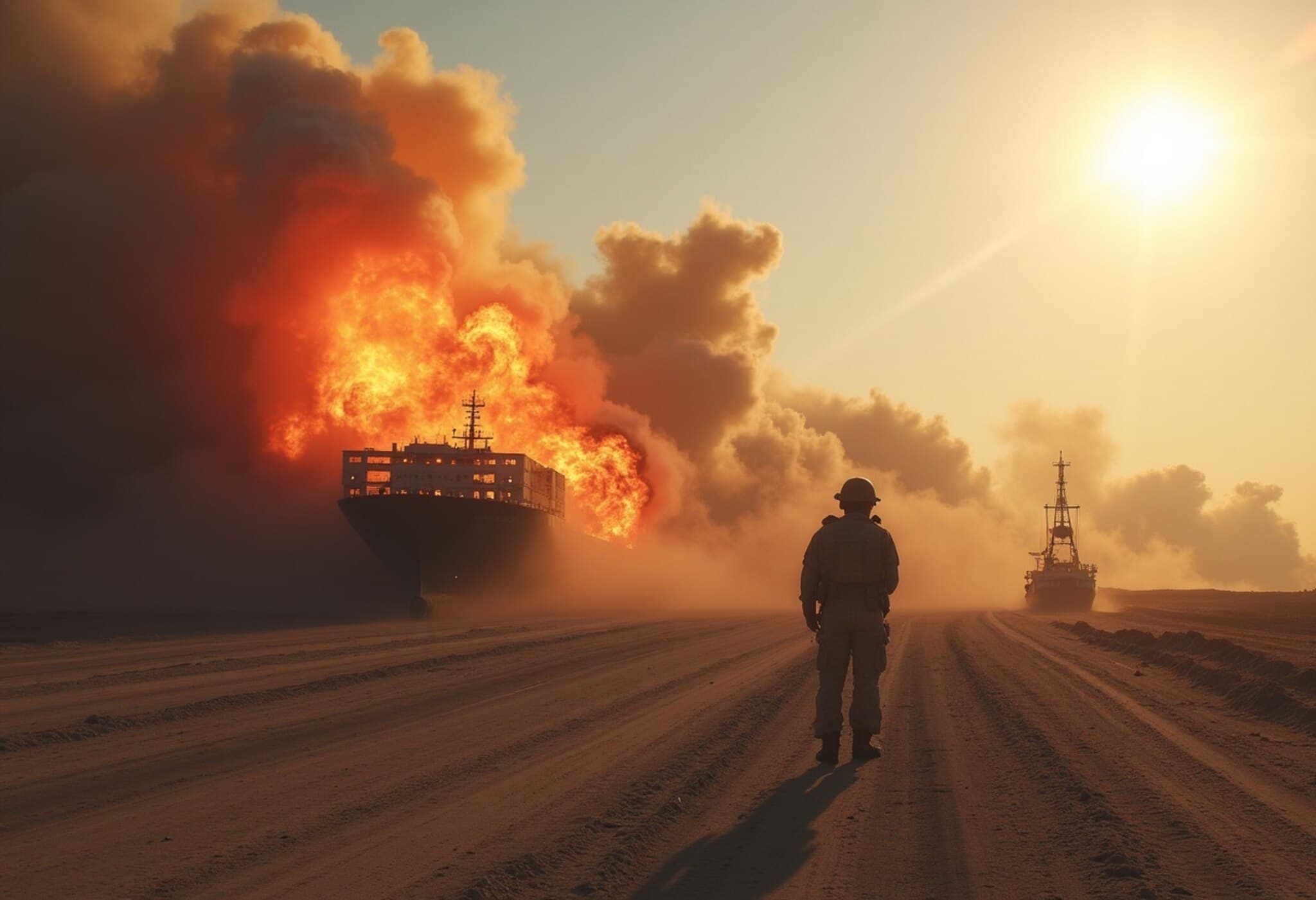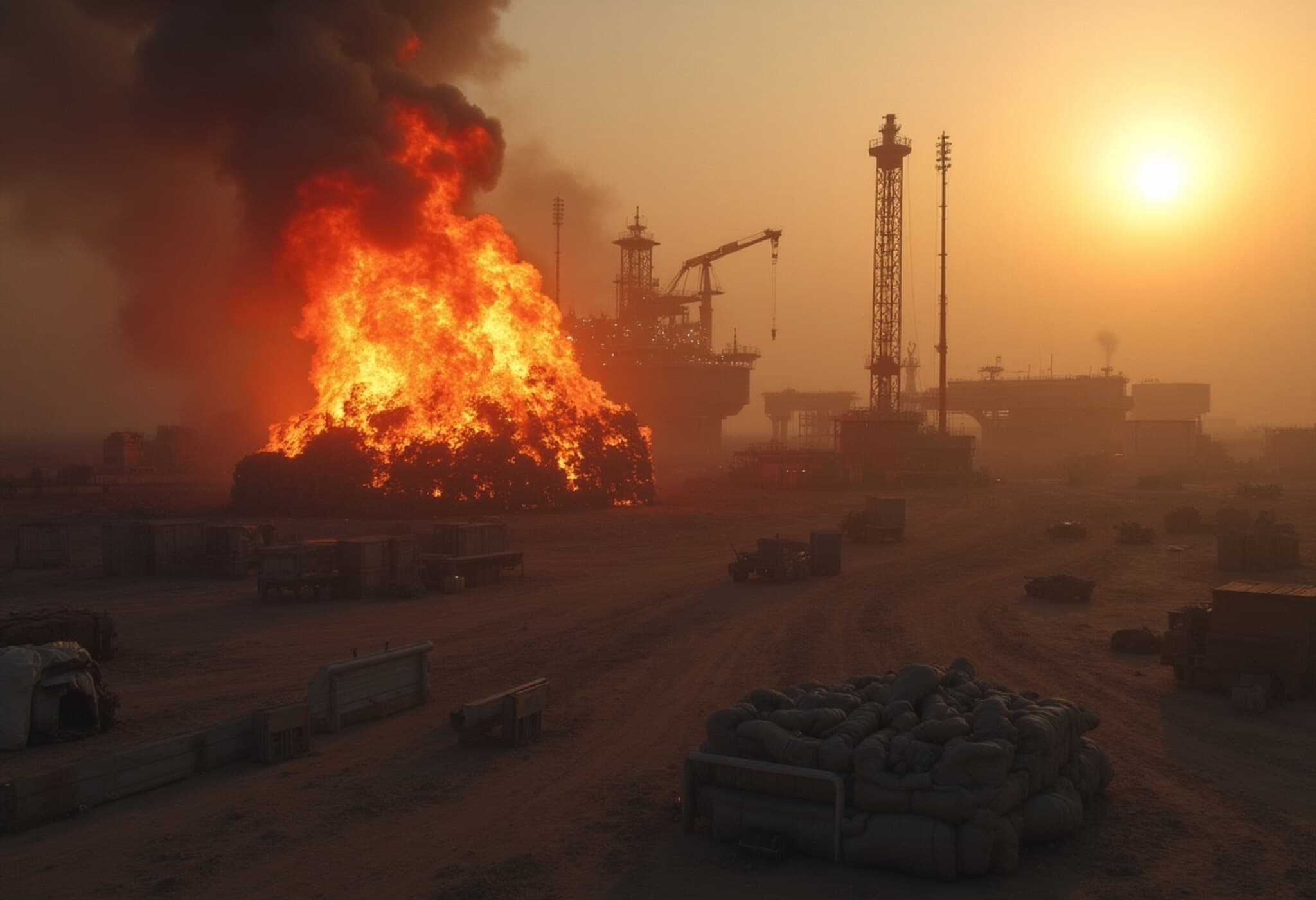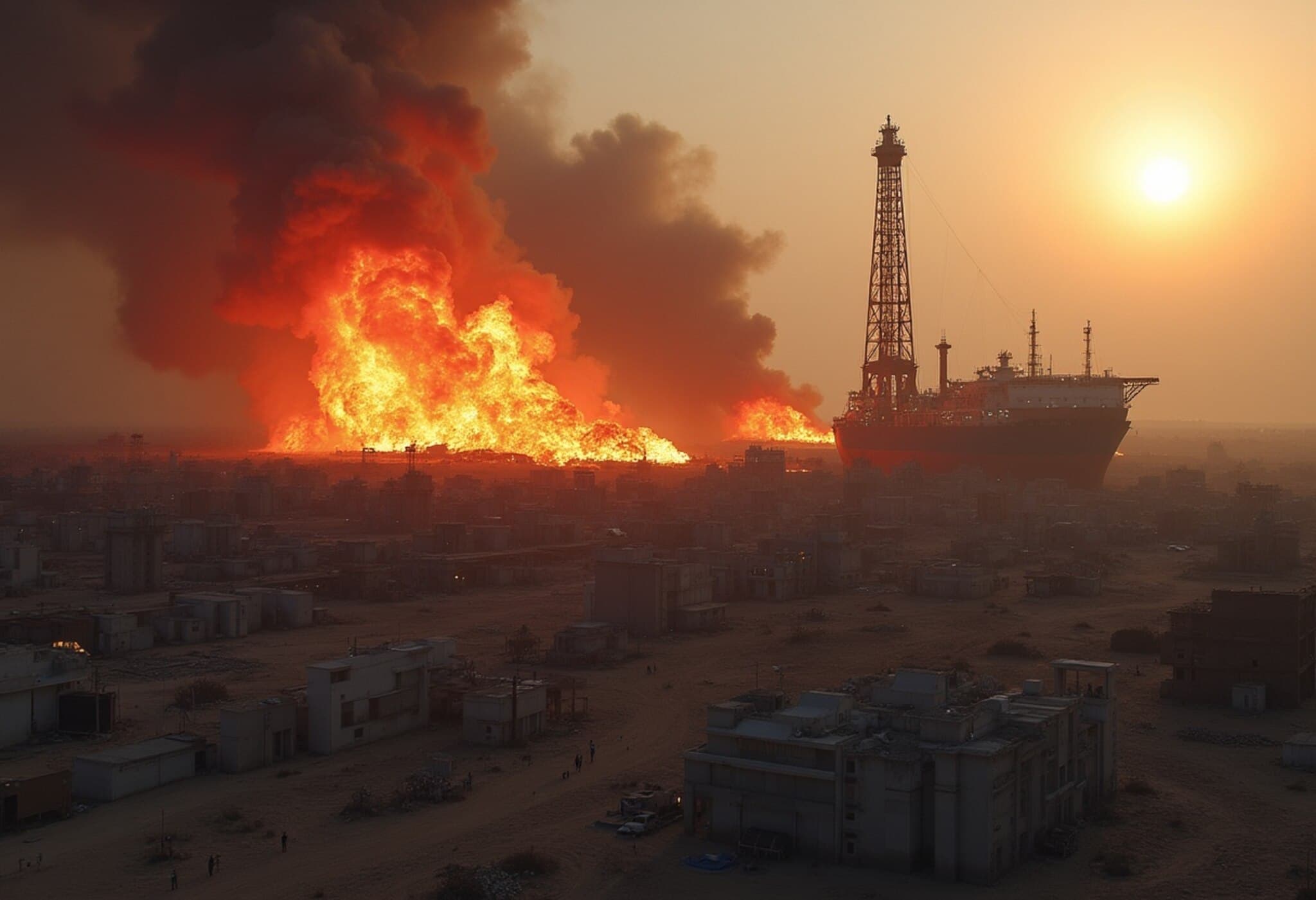Oil Analysts Grapple with Uncertainty Over Israel-Iran Conflict
As the conflict between Israel and Iran intensifies, oil market analysts find themselves at a loss in predicting how this turmoil will affect global oil prices. The recent Israeli strikes on Iran's military and nuclear sites have triggered a rapid escalation, with ongoing missile exchanges raising concerns about potential disruptions to energy supplies.
U.S. Stakes and Regional Instability
On the diplomatic front, the U.S. President has called for an "unconditional surrender" from Tehran, signaling dwindling patience amid rising tensions. Meanwhile, market participants are vigilantly considering the possibility of direct U.S. involvement and the looming threat of major supply interruptions — notably the risk of Iran blocking the critical Strait of Hormuz, a vital oil transit route linking the Persian Gulf to the Gulf of Oman.
A Market Draped in Unease
John Evans, an analyst at oil brokerage PVM, describes the atmosphere in oil markets as shrouded by a "blanket of unease." He notes, "Missile exchanges have become almost routine, yet the anxiety remains high due to the ease with which this situation could escalate further."
Iran’s ballistic missile strikes targeting Israel have already posed direct threats to regional energy infrastructure. Notably, the Bazan oil refinery in Israel sustained damage due to an Iranian attack. On the Iranian side, an incident at the South Pars gas field — the largest globally and shared with Qatar — has led Tehran to partially suspend production, further feeding concerns about supply reliability.
Price Reactions and Market Dynamics
Oil prices have reacted nervously in recent days, showing volatility amid mixed trading. As of midday London time, Brent crude futures for August delivery hovered around $76.43 per barrel, while U.S. West Texas Intermediate (WTI) futures for July traded flat at $74.86 per barrel.
Conflicting Market Forces
Per Lekander, founder of Clean Energy Transition, reflects on the market’s broader context, noting that prior to Israel's strike last week, abundant supply growth from OPEC and non-OPEC producers and subdued demand pointed towards a potential price reset to the $30-$50 range. He explains, "This conflict may ultimately hasten that reset once hostilities ease, as producers ramp up output and hedge aggressively." However, he cautions that the current environment is a "roulette," with an estimated $10 per barrel risk premium already priced in, mainly driven by disruptions to Iranian exports and declining tanker loadings.
What Lies Ahead for Oil Prices?
Looking forward, experts warn of potentially sharp price spikes should the conflict escalate. Stephen Schork, editor of The Schork Report, emphasizes, "While prices appear to be stabilizing for now, any significant flare-up could push oil substantially higher." He characterizes this moment as possibly "the biggest threat to oil markets since the 1990 Iraqi invasion of Kuwait, and perhaps even more severe than the 1974 Arab oil embargo."
Schork estimates around a 5% chance that oil prices may exceed $103 per barrel within the next five weeks if tensions worsen. The probabilities of crude soaring to $160 per barrel by summer’s end remain longer-term but are linked to severe disruptions in Persian Gulf exports.
Key Takeaways
- The Israel-Iran conflict has injected deep uncertainty into global oil markets, complicating price forecasts.
- Potential supply interruptions, particularly in the Strait of Hormuz, remain a critical concern.
- Current market pricing includes a substantial risk premium reflecting unresolved geopolitical risks.
- Experts warn that escalating conflict could trigger historic spikes in oil prices.

